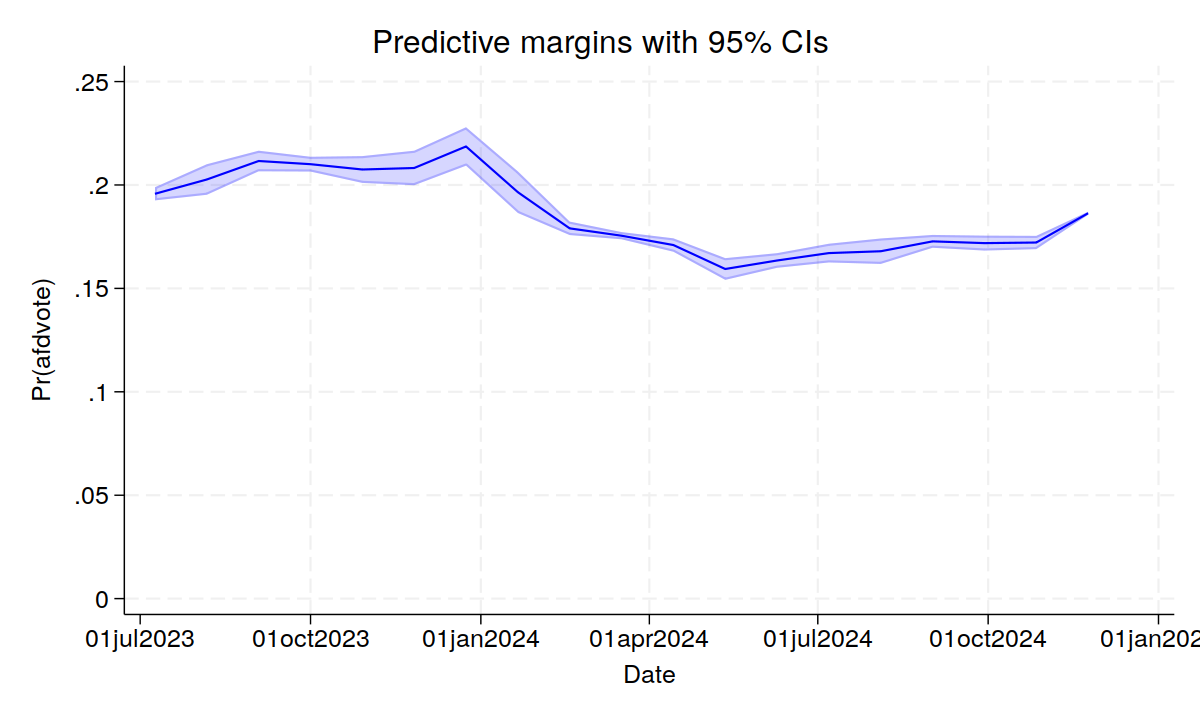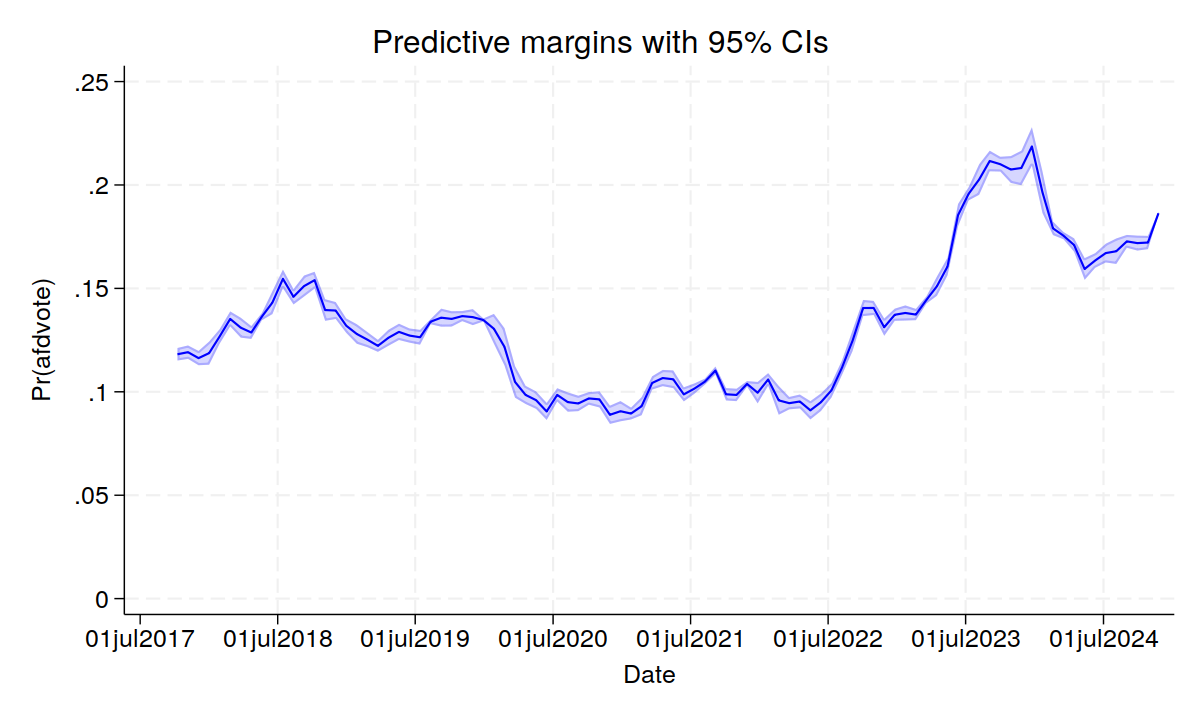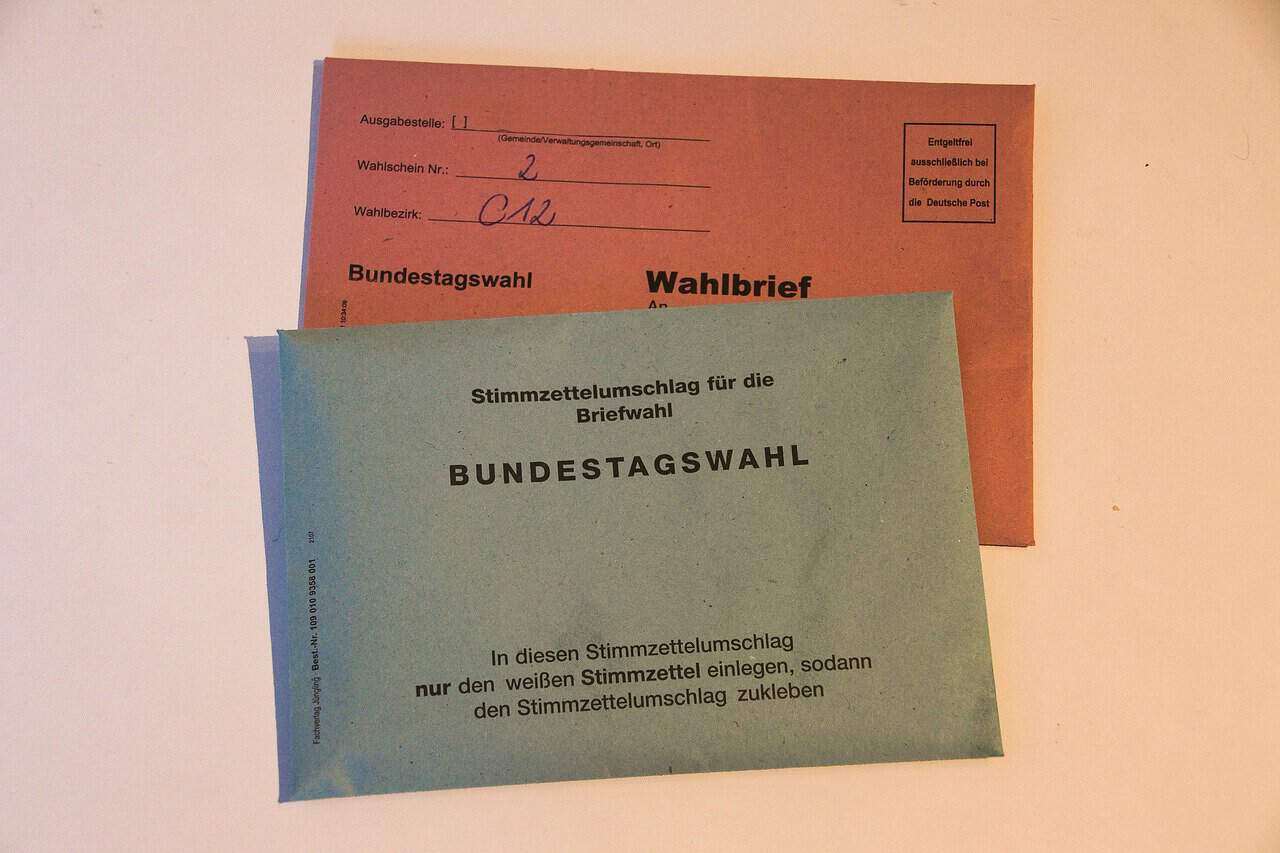Germany is heading for an early election, most likely on February 23. While the parties of the outgoing ‘traffic light’ coalition are in for a beating and the CDU/CSU will in all likelihood come out of this as the strongest (though not overwhelmingly strong) party, we are all wondering how Alternative for Germany (AfD) will fare.
Can (contemporary) history be a guide?
After a string of successes at the subnational level and a thorough transformation, the party entered Germany’s federal parliament for the first time in 2017. This gave them access to funds, staff, and a place on the national stage.
But the AfD also faced considerable backlash and internal strife during its first term in parliament. Against the backdrop of the pandemic and the party’s ongoing, almost continuous radicalisation, the AfD actually suffered some small losses in the 2021 election.
However, Russia’s renewed attack on Ukraine turned out to be a boon for Alternative for Germany: pro-Russian/anti-war sentiment, an energy scare, a new wave of refugees, and a discourse shift right out of the Little Book of Framing, Salience & Agenda Setting all helped to prop up support for the party.
Although the AfD was embroiled in a string of scandals that should have hurt them massively, they did quite well in the 2024 European Parliamentary elections. So, to get an idea of how AfD support has waxed and waned over the last 18 months, I have restarted my trusty-if-a-little pedestrian poll aggregator Here are the results:

Support for the AfD reached unprecedented levels roughly one year ago, when the party briefly polled just over 20% in national surveys. This was followed by a quick decline at the beginning of 2024, when news of the party’s ‘remigration’ plans triggered mass protests while the new ‘Sahra Wagenknecht Alliance’ BSW presented itself as an allegedly left-wing alternative to the Alternative that probably poached some AfD voters.
AfD support dropped to its lowest level this year shortly before the European elections. Since then, it has slowly inched up and then remained steady at about 17 per cent. The collapse of the government and the debate about the not-so-snap election have given the party a small but statistically significant boost that pushed them a point or two closer to the 20% line.
What does that mean for their 2025 prospects? Honestly, no one knows right now. While I expect that things should be a little less erratic than during the first post-Merkel campaign in 2021, three months is, as they say, a very long time in politics.

One can, however, put the current level of support into perspective by looking at the long-term trends. From the graph, it is clear that the AfD is doing extraordinarily well at the moment. Before June 2023, they had crossed the 15%-line only once and only briefly, back in 2018. Since then, their (averaged) support has not once fallen below 15%.
So, if the recent surveys are any guide, it seems safe to assume that their 2025 result should fall within the 15-20% envelope that their poll ratings have not left over the last 18 months. If they land exactly in the middle, that would mean that they could increase their 2021 result by half. For a party that is already classified as extremist in several federal states, this seems extraordinary. Interesting times etc.
Discover more from kai arzheimer
Subscribe to get the latest posts sent to your email.



Likes
Reposts